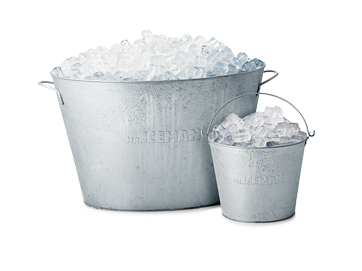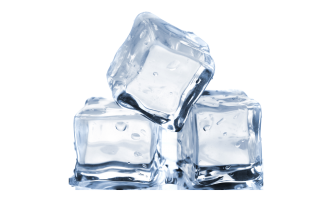Why it’s important to clean your ice machine.

Charles Blair, Baltimore Metro Sales
By: Charles Blair, Baltimore Metro Sales
Keeping your ice machine maintained and cleaned regularly needs to be a priority on your maintenance schedule. This helps ensure that it is safe to use, runs efficiently, produces high-quality ice and complies with regulations, all while prolonging the life of the machine and preventing costly breakdowns.
Benefits
Sanitation: A dirty ice machine can harbor bacteria and other contaminants that are harmful to human health. Regular cleaning and maintenance helps prevent the growth of bacteria and other microorganisms, keeping the ice safe to consume. Having your commercial ice machine maintained and cleaned regularly helps ensure that it is safe to use, runs efficiently, produces high-quality ice and complies with regulations, all while prolonging the life of the machine and preventing costly breakdowns!
Efficiency: An ice machine that is not properly maintained will not run as efficiently as one that is. This can lead to higher energy costs and an increased risk of breakdowns. Regular maintenance can help to keep the machine running smoothly, which can help to save money on energy costs in the long run.
Taste and smell of ice: Over time, an ice machine can accumulate mineral buildup, dirt, mold and other contaminants, affecting the taste and smell of the ice. Regular cleaning and maintenance can help to remove these contaminants, ensuring that the ice produced by the machine is fresh and clean-tasting.
contaminants, affecting the taste and smell of the ice. Regular cleaning and maintenance can help to remove these contaminants, ensuring that the ice produced by the machine is fresh and clean-tasting.
Longevity: Like any mechanical equipment, regular cleaning and maintenance can help to extend the lifespan of an ice machine.
Compliance: Some regions have strict regulations regarding sanitation and safety in the food service industry. Regular cleaning and maintenance can help to ensure that an ice machine is in compliance with local laws and regulations, which can help to prevent costly fines or penalties.
Health & Safety
Bacteria: Bacteria such as Legionella pneumophila, Pseudomonas aeruginosa and Escherichia coli (E. coli) can survive and grow in the warm and humid conditions of an ice machine. These bacteria can cause respiratory and other illnesses, especially in people with weakened immune systems.
can survive and grow in the warm and humid conditions of an ice machine. These bacteria can cause respiratory and other illnesses, especially in people with weakened immune systems.
Pathogens: Pathogens such as norovirus and Hepatitis A can be transmitted through contaminated ice and drinking water. These viruses can cause stomach and intestinal illness and are highly contagious.
Protozoa: Parasites like Giardia and Cryptosporidium can be found in water sources and can be transmitted through ice and drinking water. These parasites can cause diarrhea and other gastrointestinal symptoms.
Legionella pneumophila: This bacteria can cause serious infections like Legionnaire’s disease, which is a severe type of pneumonia that is caused by inhaling small droplets of water that are contaminated with the Legionella bacteria.
These illnesses can be avoided by proper cleaning, sanitizing + maintaining ice machines and by ensuring the water supply is free of contaminants. Choose effective and affordable water filtration systems that keep your water safe for consumption and your equipment safely clean. Testing the water supply and ice regularly and proper handling/storage practices are important to prevent cross-contamination. This is critical for any business in any setting!
Click here to print a copy of these important reminders.




